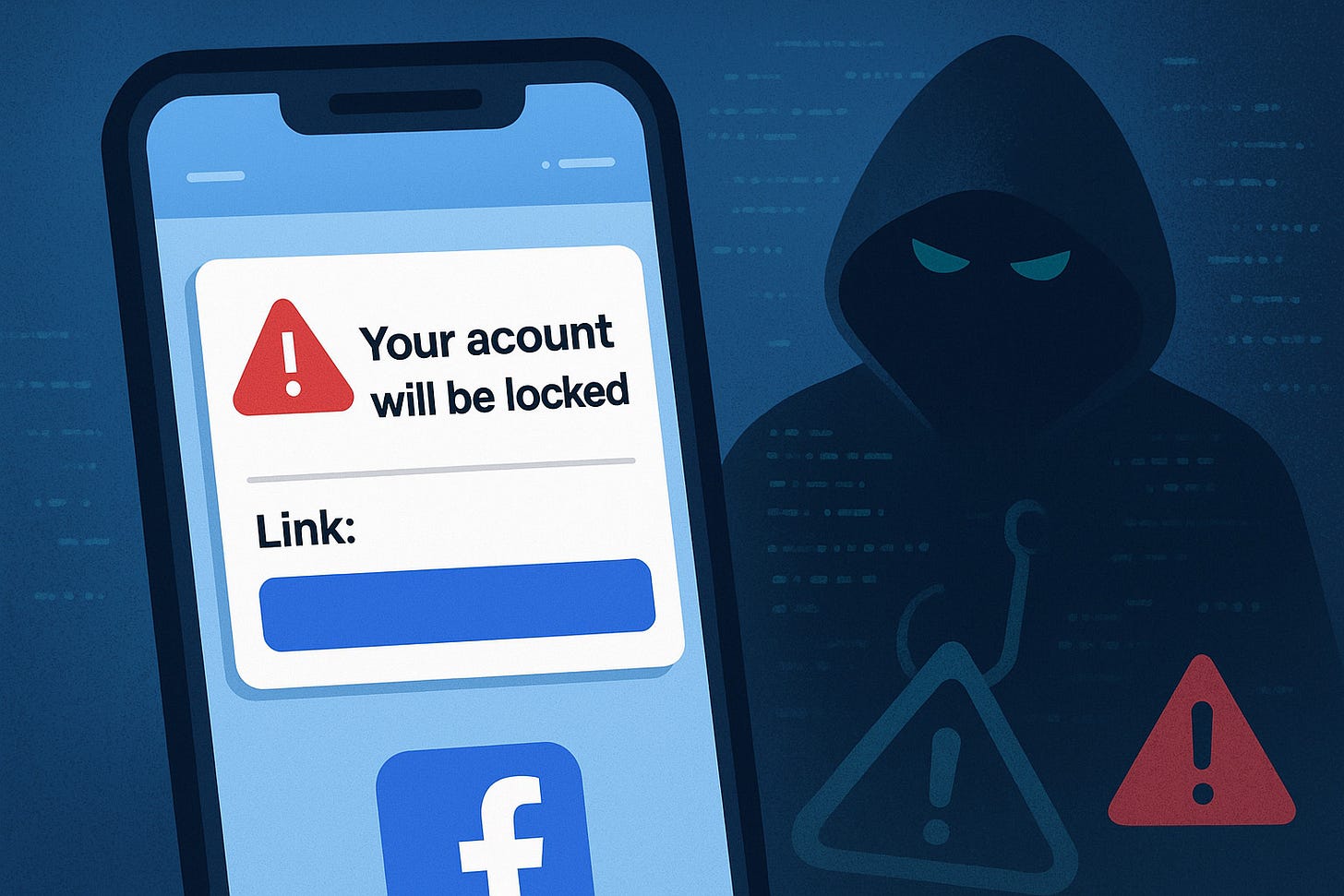Why Scammers Love Impersonating Meta
Watch Out for Fake Meta and Facebook Alerts
tl;dr
Fake messages claiming to be from Meta, Facebook, or Instagram continue to hit inboxes and DMs. The messages warn of account bans, copyright violations, or security lockouts, but it’s all a scam. The goal is to trick you into clicking phishing links and handing over your login details. Your Facebook account is very valuable to online crooks.
Facebook Is Everyday Life for Many. That Can be Exploited
For billions of people, Facebook and Instagram are part of daily life. They’re where we connect with friends, run small businesses, and manage community pages.
Because of that familiarity, many users don’t think about security on social media in the same way they do with banking or shopping platforms.
But losing access to a Facebook account can be devastating, especially if it’s tied to your livelihood, business presence, or important personal connections.
How the Scams Work
Scammers know that fear and urgency make people act quickly, especially when they think they might lose something important.
Typical scam formats include:
Fake “Meta” emails or messages claiming your account will be disabled or restricted.
Phishing links that lead to convincing fake login pages.
Urgent language such as “Your account will be permanently deleted in 24 hours”.
Spoofed sender names like Meta Support, Facebook Security, or Copyright Help Team.
If you enter your login details, the scammers take over your account. Once in, they can use your account to target your friends or followers with further scam and spam campaigns.
Why Scammers Impersonate Meta
Impersonating Meta gives scammers instant credibility. People are used to seeing Facebook-branded notifications and messages, so they don’t always stop to question them.
Scammers exploit this in three ways:
Trust: People trust the Meta brand.
Fear: The threat of losing access to an important account triggers panic.
Familiarity: The look and tone of real Meta messages make fake ones seem genuine.
How to Protect Yourself
You can avoid these scams by following a few simple precautions:
Never click links in messages or emails that claim to be from Facebook or Instagram.
Go directly to the app or website to check for alerts.
Turn on two-factor authentication (2FA). This can protect your account even if your password is compromised.
Check the sender address. Is it associated with an official Meta or Facebook domain?
Be sceptical of urgent threats. Meta rarely sends urgent, time-limited warnings.
Report phishing attempts using Facebook’s official reporting tools.
The Takeaway
Social media accounts might not hold money like a bank account, but they may hold your identity, your network, your reputation, and sometimes your business.
Scammers know that. Such data is very valuable to online crooks.
That’s why Meta impersonation scams continue to thrive and why staying alert on social platforms is just as important as watching your bank account.


